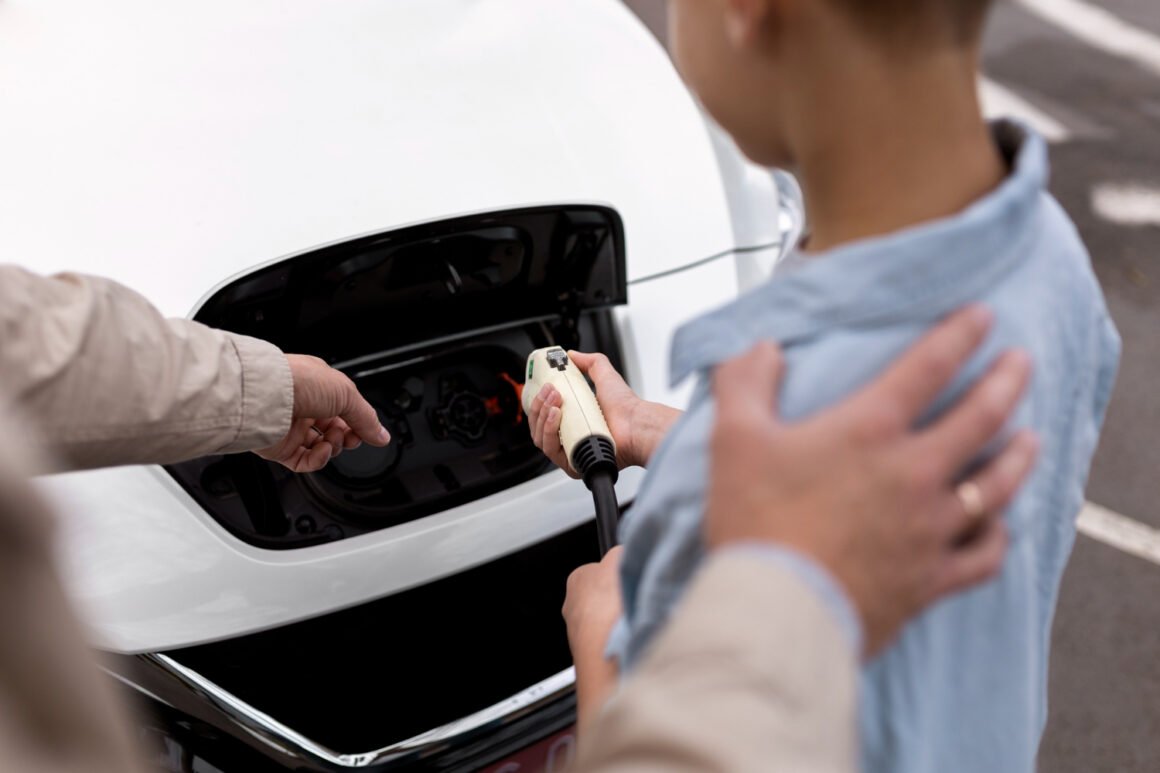Electric vehicles (EVs) are becoming increasingly popular due to their eco-friendly nature and advanced technology. However, just like traditional vehicles, EVs are not immune to certain mechanical issues. One such concern that drivers may encounter is electric vehicle vibration. This phenomenon can cause discomfort, affect driving performance, and even indicate underlying mechanical problems. In this article, we’ll delve into the causes, types, and solutions for electric vehicle tremors, as well as how to address these EV vibration issues.
What Causes Electric Vehicle Vibration?
1. Electric Vehicle Motor Vibration
The motor is the heart of any EV, and vibrations in this area can cause noticeable shaking. Electric vehicle motor vibration may be caused by misalignment, wear and tear, or faults in the motor mount. If this issue is left unaddressed, it can affect the overall performance of the vehicle.
2. Battery Issues
In electric vehicles, the battery plays a crucial role in power delivery. Electric vehicle resonance can occur if the battery is not securely mounted or if there’s a malfunction within the battery itself. An imbalanced or defective battery can result in excessive vibrations or EV movement disturbances.
3. Tire and Wheel Problems
Uneven tire wear or improper wheel balancing can cause electric car vibrations. The tires are the primary contact point between the road and your vehicle, so any issues with them can lead to noticeable EV oscillation or shaking, particularly at high speeds.
4. Suspension Issues
Just like in gasoline-powered cars, problems with the suspension system in electric vehicles can lead to electric vehicle shaking. Worn-out shock absorbers or struts, along with damaged suspension components, can create a rough ride and vibrations throughout the car.
5. Brake Issues
When the brakes in an EV are worn down or improperly adjusted, it can lead to a shaking sensation when the car comes to a stop. This electric vehicle handling vibrations can be felt through the pedals or steering wheel.
How to Identify Electric Vehicle Vibration Problems
1. Feel the Vibration
Notice where the vibration is coming from. Is it felt in the steering wheel, seat, or floor? Determining the source of the vibration can help pinpoint the issue. For example, steering wheel vibrations might point to wheel alignment or brake problems, while vibrations in the seat may be linked to the suspension system.
2. Monitor Speed and Conditions
Pay attention to whether the EV oscillation occurs at specific speeds or under certain driving conditions. Vibrations that intensify at higher speeds could indicate a problem with the tires, alignment, or motor mount. Shaking that only happens when braking might signal issues with the braking system.
3. Consult the Dashboard
Modern EVs are equipped with diagnostic tools that can alert you to potential problems. If you notice any unusual vibrations or shaking, check your vehicle’s dashboard for any warning lights related to the motor, battery, or suspension system.
Solutions for Electric Vehicle Vibration
1. Check Tire Balance and Alignment
Ensure that your tires are properly balanced and aligned. Unbalanced tires are a common cause of electric vehicle vibration. If the wheels are out of alignment, it can cause excessive wear and create uneven force on the tires, leading to unwanted shaking.
2. Secure the Battery
If the vibrations are related to battery movement, ensure that the battery is securely fastened. Have the battery checked for any potential malfunctions, such as a loose connection or damage, which could cause EV resonance.
3. Inspect the Suspension System
Worn-out suspension components like shocks or struts should be replaced promptly. Suspension issues are a common cause of electric vehicle shaking and can affect the overall driving experience.
4. Perform Regular Maintenance
Regular vehicle maintenance, such as checking motor mounts and brakes, can prevent many common sources of electric vehicle performance shake. Keep the vehicle’s parts in good condition to avoid unnecessary vibrations.
5. Visit a Professional
If you’re unable to identify the cause or resolve the vibration issue yourself, it’s essential to consult an EV mechanic. Professional mechanics can inspect the vehicle and run diagnostics to identify and address the problem.
Preventing Future Electric Vehicle Vibration
To prevent future EV vibration issues, follow these tips:
- Maintain Regular Tire Rotation: This ensures even wear and reduces the chances of vibrations caused by tires.
- Check for Loose Components: Ensure that parts like the motor, battery, and suspension are tightly secured.
- Avoid Rough Roads: Driving on rough terrain or potholes can exacerbate shaking or vibrations, so try to avoid them when possible.
- Stay Up to Date with Software Updates: Sometimes vibrations can be related to software issues in the electric motor. Always update your EV’s software to the latest version.
Conclusion
Electric vehicle vibration can be more than just an annoyance—it can also indicate underlying mechanical problems that need attention. By understanding the causes of EV oscillation and following the appropriate solutions, you can ensure a smoother, more comfortable ride in your electric vehicle. Regular maintenance and prompt action can help you address any issues before they become more serious. If you experience persistent vibrations, don’t hesitate to seek professional assistance.
FAQs
1. Why does my electric vehicle shake when I accelerate?
Shaking during acceleration could indicate issues with the tires, wheel alignment, or the motor itself.
2. How do I know if my EV’s motor is causing the vibrations?
If vibrations are felt in the floor or seat, it could be related to the motor. A professional inspection is recommended.
3. Can poor tire pressure cause electric vehicle vibrations?
Yes, incorrect tire pressure can cause uneven tire wear, which in turn can lead to shaking and vibrations.
4. Are EV vibrations common?
While not unusual, vibrations are often a sign that something may need attention. Regular maintenance can prevent most issues.
5. Can I fix EV vibrations on my own?
Some issues, like tire imbalance or loose battery connections, can be fixed at home. However, persistent or complex vibrations should be inspected by a professional.
